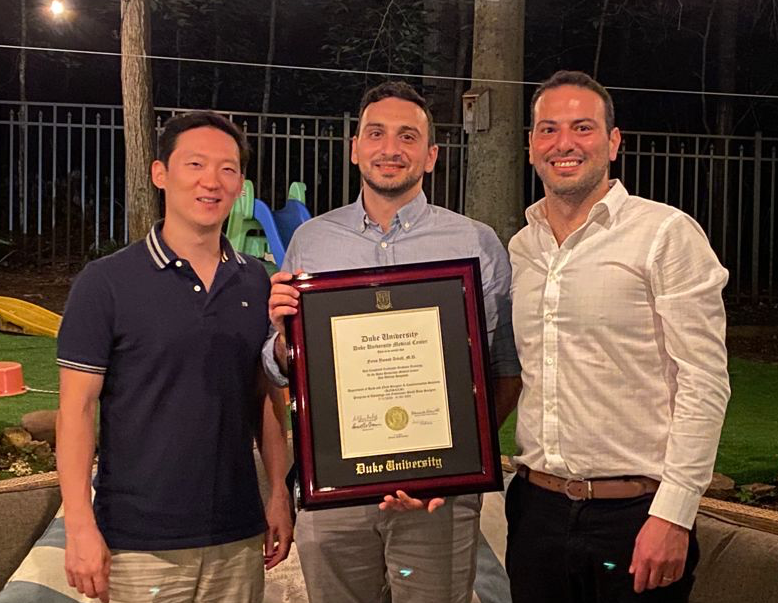Clinical Rotations
On average, the fellow will spend two days a week in the OR, two days a week in the clinic, and one day a week for research and administrative duties. The schedule is adjusted on a weekly basis in order to optimize the fellow's surgical experience. Eligible fellows will have an independent half-day clinic each week. For those interested, there is an option to rotate through our allergy department.
Weekly Schedule
| Monday | Tuesday | Wednesday | Thursday | Friday | |
|---|---|---|---|---|---|
| AM | Academic | Clinic/OR | Clinic | OR | OR |
| PM | Academic | Clinic | Clinic | OR | OR |
Research Responsibilities
The rhinology fellow is encouraged to participate in basic science, translational, or clinical research projects available within the department and throughout the university. Clinical research opportunities are available with support from the Duke Clinical Research Institute, Biostatistics Core, the Surgical Center for Outcomes Research (SCORES), and industry funding. There is also an option to enroll in didactic courses offered through the Duke Clinical Research Training Program. Other research opportunities include work in computational fluid dynamics through an NIH funded laboratory headed by Dr. Dennis Frank-Ito. A nasal endoscopic cadaver dissection laboratory is available, offering the fellow the opportunity to participate in anatomic studies and to fine tune surgical skills.
Basic science and translational research opportunities are available within the olfactory research program run by Dr. Brad Goldstein. Dr. Goldstein’s NIH-funded laboratory uses mouse models, cell cultures, and human nasal tissue specimens to identify mechanisms regulating adult basal stem and progenitor cells in the olfactory epithelium, as well as olfactory tissue maintenance and renewal. The goal is to understand the cellular and molecular mechanisms causing acquired human olfactory disorders, to facilitate the development of new treatments.
The fellowship is designed to provide adequate time for academic pursuits, and fellows are strongly encouraged to present at national meetings. Research goals are tailored to the individual’s interests and plans.

Diversity of Cases
The fellow will participate in 300 to 350 cases throughout the year. These include nasal airway surgery, primary and revision sinus surgery, endoscopic orbital surgery and endoscopic skull base surgery. Endoscopic skull base cases include anterior skull base, sellar, parasellar, clival, middle cranial fossa and other extended approaches for neoplastic and non-neoplastic conditions. Inflammatory cases include recurrent polyposis, allergic fungal sinusitis, aspirin-exacerbated respiratory disease, and cystic fibrosis. Orbital cases include mainly endoscopic DCR, endoscopic orbital and optic nerve decompression and orbital tumors.
Call Schedule
The fellow is expected to cover 6 weeks of attending call throughout the academic year (no pediatric or trauma call).
Resident Education
Fellows are expected to actively participate in resident education in the clinic and operating room and through formal didactics. The fellow will also participate in our monthly rhinology case conferences and annual cadaveric dissection course. Fellows will be responsible for one formal grand rounds presentation during the year.
Additional Information
Fellows will be appointed as a clinical instructor with full admitting and operating privileges at Duke University Hospital. Salary and benefits will be provided at the PGY-6 level.